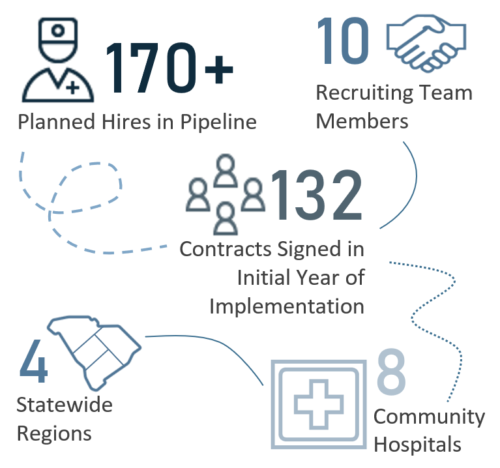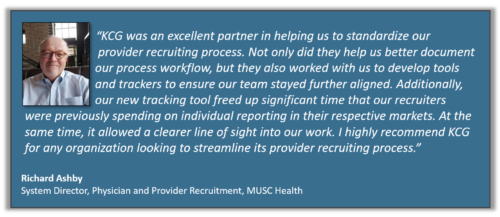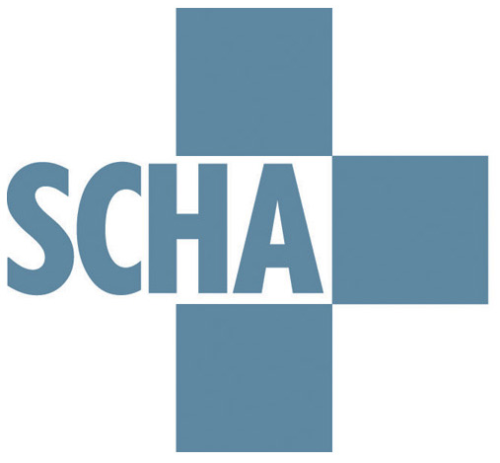
Client Overview
MUSC Health is the state-wide clinical delivery arm of the Medical University of South Carolina. The health system includes a Regional Health Network [RHN] that was formed in 2019 with MUSC Health’s acquisition of four community hospitals. It has since expanded through acquisition and new facilities, currently comprising of eight regional hospitals across the state.
The Challenge
MUSC Health’s provider recruitment was historically driven by the College of Medicine and its Department Chairs, with a focus on academically-oriented candidates. Conversely, in the RHN, the focus was on recruiting community-oriented providers. Additionally, as the RHN was created through multiple acquisitions involving various operators, each hospital had its own unique recruiting team, technology, and process, making standardization very difficult.
The Solution
MUSC Health engaged Knowledge Capital Group [KCG] to assist in creating standardized processes and centralized reporting and tracking tools. To accomplish this, KCG utilized the following framework:
1. MAP & STANDARDIZE PROCESS: A formal recruitment workflow was developed for the entirety of the recruitment life cycle, starting with the identification of the need to hire and running through contract execution. KCG partnered with key stakeholders on the recruitment team to document the workflow and create standard phases of recruitment with clear definitions, steps, and milestones. Mandatory documentation items were established for each phase to ensure quantitative accuracy and consistency.
2. DEVELOP & BUILD TECHNOLOGY: With the standard process established, KCG built a recruitment database within Smartsheet™ that provided each RHN recruiter their own portal to track candidates throughout the lifecycle. The database included tools to provide robust tracking, reporting, and follow up communication. Since the tool was architected on a web-based platform, information was transparent and allowed the recruitment team and leadership access to reports that could be filtered based on a specific provider specialty, a particular hospital, or rolled up and consolidated across the RHN.
3. IMPLEMENT & OPTIMIZE: With the tracker in place, recruiters were able to proactively manage their pipelines and consistently report on progress without the need to manually provide updates. Leadership also had access to real-time, accurate data to aid in process optimization. Metrics could be easily extracted, analyzed, and tracked to evaluate progress and efficiencies and identify opportunities for improvement in the recruitment process. Examples of data that could be examined include length of time from initial contact to contract execution or which candidate sources produced the greatest number of hires.








